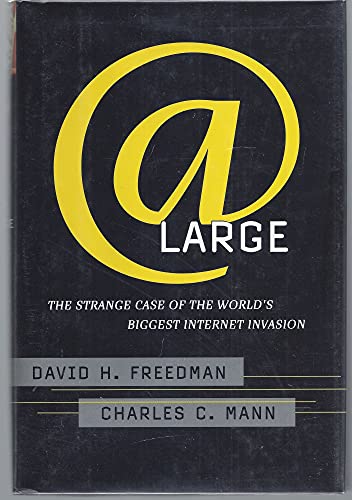Synopsis
Describes how one computer hacker was able to access hundreds of business and government files and explains why the Internet is becoming less secure
Reviews
A real-life tale of cops vs. hackers, by two technology writers with a flair for turning a complicated crime and investigation into a fast-moving, edge-of-your-seat story. Freedman (Brainmakers, 1994) and Mann (coauthor, Noah's Choice, 1995) tell the tale of a reclusive teenage hacker, alternatively dubbed Phantomd and Infomaster, who hopscotches around the Internet, breaking into systems and generally wreaking havoc online; his ``absurd, dangerous, monomaniacal course'' of trespassing on computer networks causes even his hacker cronies to fear him. With incisive descriptions and prose that's never overburdened by jargon, the authors chronicle the progression of Phantomd's online intrusions from university computers to Intel to top-secret government databases, and the federal investigation that finally nabs him. Unfortunately, the story loses steam at the end, when the FBI inexplicably decides not to have him prosecuted. Still, the book works because of the authors' skill at portraying their characters and building suspense and momentum from online events that are difficult to visualize. The best character, by far, is Phantomd himself, a disabled and massively antisocial youth who is capable of spending days at a time at his computer. As the hacker gets deeper and deeper into trouble, his brother tries futilely to save him, and the book takes on the dimensions of an information-age tragedy. Phantomd's last line, in particular, is heartbreaking, a testament to how the writers deftly recruit the reader's sympathy for the story's antagonist. Finally, the book becomes a portent: The authors make a strong case for the vulnerability of the Internet, describing its ``electronic Maginot lines'' and their inadequacy in the face of patient young invaders with powerful tools. With this extraordinary story and its hard-learned lessons, the authors should make more than a few of their readers wary of staking their privacy on the online world. (First serial to the Atlantic Monthly) -- Copyright ©1997, Kirkus Associates, LP. All rights reserved.
Freedman, editor of Inc. Technology magazine, and Mann (Noah's Choice, LJ 2/15/95) have collaborated to produce a rather aimless account of a widespread series of related and mostly unpublicized computer-hacking incidents perpetrated by a cracker (computer hacker) known as "Phantomd." Basing their book on numerous personal interviews with network system administrators and "hundreds of megabytes of computer logs" (yawn), the authors presumably wish to convey some sort of "ominous warning about the Internet's fatal flaws." While network administrators worried about system security issues may find these accounts fascinating, average online mavens will find them dull and plodding. The epilog succumbs to preachiness on the topic of computer and network security. More riveting accounts of computer crime can be found in two books from Jonathan Littman, The Fugitive Game (LJ 1/96) and The Watchman (LJ 2/15/97).?Joe Accardi, Northeastern Illinois Univ. Lib., Chicago
Copyright 1997 Reed Business Information, Inc.
In this nonfiction study that takes on elements of fiction, a cracker (the proper term for an intruder who successfully hacks into a system) disrupts the computer network at Portland State University's electrical engineering department. Using a modem and home computer, the cracker, known first as the Phantom Dialer and later as Infomaster, used password software and Trojan horses (modified programs with unpleasant surprises lurking inside) to break into the Portland State system and use it as a springboard to access hundreds of other systems nationwide. Being a poor speller, however, Infomaster spent hours repeatedly typing code until his hands became claws. When he eventually cracked a system, he read the e-mail, stole credit-card numbers, or, as with MIT, Texas A & M, NASA, and other groups, crashed systems. The cracker, a frail, antisocial young man who rarely ventured outside his room, had earlier been committed to the Oregon State Hospital and diagnosed with schizophrenia. This complicated tale of one cracker's insane persistence makes the reader cringe at the potential for chaos in cyberspace. Jennifer Henderson
"About this title" may belong to another edition of this title.
